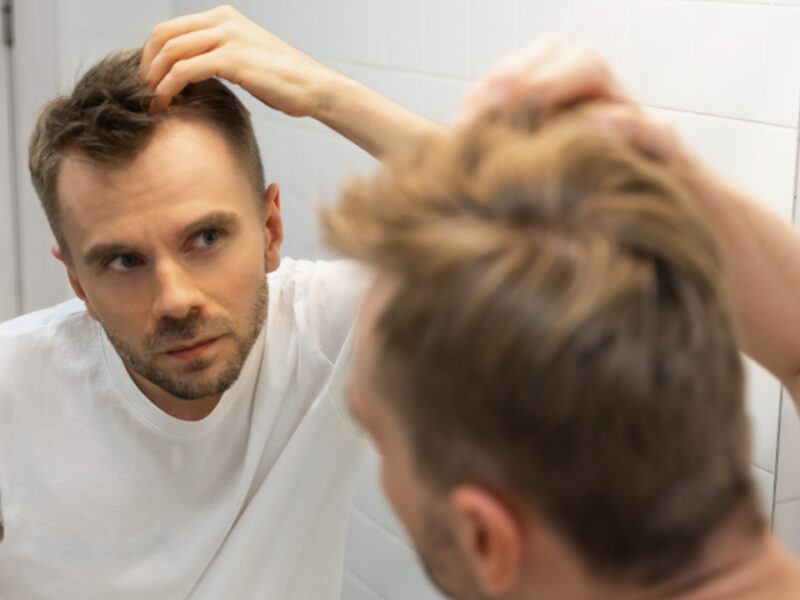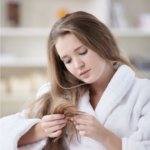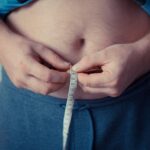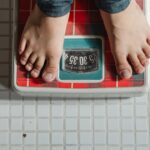Hair loss can be an emotional and frustrating experience. While genetics and aging often take the blame, two lesser-known culprits—stress and nutrition—play a significant role in the health of your hair. Understanding how these factors impact your locks can help you regain control and take steps toward healthier hair.
Let’s dive into the hidden triggers of hair loss and explore what you can do about them.
The Link Between Stress and Hair Loss
Stress is unavoidable, but chronic stress can leave a mark on your health, including your hair. If you’ve noticed more strands on your brush during a particularly tense period, you’re not imagining things—stress can directly impact hair growth.
What Stress Does to Your Hair
When your body is under stress, it releases a hormone called cortisol. While cortisol is essential for your body’s “fight or flight” response, it can disrupt the hair growth cycle if it’s elevated for too long.
Hair follicles cycle through three phases:
• Anagen (growth)
• Catagen (transition)
• Telogen (rest)
Stress can prematurely push more hair follicles into the telogen phase, leading to excessive shedding.
Types of Stress-Related Hair Loss
There are three main types of stress-induced hair loss:
- Telogen effluvium: This temporary condition occurs when significant stress forces hair follicles into the telogen (shedding) phase. While it often resolves on its own, the shedding can last several months.
- Alopecia areata: Stress can trigger an autoimmune response where the body attacks its own hair follicles, causing patchy hair loss.
- Trichotillomania: This psychological condition involves compulsive hair pulling, often to cope with stress or anxiety.
How to Combat Stress-Induced Hair Loss
The good news is that stress-induced hair loss is often reversible. Here are some strategies to manage stress and protect your hair:
- Talk to your doctor: If stress-related hair loss persists, consult with your doctor. Treatments like minoxidil or finasteride may help stimulate hair regrowth and strengthen existing follicles. Your doctor can evaluate your condition and determine whether these treatments suit you.
- Practice relaxation techniques: Yoga, meditation, and deep breathing exercises can reduce cortisol levels and promote relaxation.
- Exercise regularly: Physical activity helps lower stress hormones while boosting circulation to the scalp.
- Prioritize self-care: Make time for hobbies, sleep, and social connections to maintain a balanced lifestyle.
- Seek professional help: If stress feels overwhelming, consider speaking to a therapist. Cognitive-behavioral therapy (CBT) can help you develop healthier coping mechanisms.
By addressing stress head-on, you can help protect your hair from unnecessary loss and encourage healthier growth.
Nutrition’s Role in Hair Health
Just like every other part of your body, your hair relies on proper nutrition to stay strong and healthy. Nutrient deficiencies can weaken hair follicles, slow growth, and increase shedding, making diet a critical factor in hair health.
How Nutrition Affects Hair Growth
Hair follicles rely on essential vitamins and minerals to function properly. Nutrients like vitamin D, iron, and vitamin C help develop hair follicles, transport oxygen, and improve nutrient absorption. Deficiencies in these areas may lead to weakened follicles and shedding.
Essential Nutrients for Healthy Hair
To support optimal hair health, your body needs a balanced intake of specific nutrients:
- Vitamin D helps form new follicles— the building blocks for fresh hair growth. Low levels can slow or even stop this process.
- Iron delivers oxygen to hair follicles, fueling growth. An iron deficiency reduces this supply, which can cause shedding or hair thinning.
- Vitamin C enhances your body’s ability to absorb iron, ensuring follicles get what they need to thrive.
While deficiencies in nutrients like vitamin B7 (biotin) and zinc are often cited in hair loss discussions, the scientific evidence remains mixed. Nutritional gaps alone may not cause hair loss, but they can make existing problems worse.
Steps to Optimize Your Nutrition for Hair Health
To ensure your diet supports healthy hair, follow these steps:
- Eat a balanced diet: Incorporate lean proteins, whole grains, fruits, vegetables, and healthy fats into your meals.
- Focus on nutrient-dense foods: Include iron-rich options like spinach and lentils, zinc-packed nuts and seeds, and biotin-rich eggs.
- Consider supplements: If you struggle to get enough nutrients from food alone, consult a healthcare provider about supplements tailored to your needs.
Stress and Poor Diet: A Vicious Cycle
Stress and poor nutrition often go hand in hand, creating a vicious cycle that can wreak havoc on your hair. When stressed, you may find yourself reaching for comfort foods high in sugar and low in nutrients. Over time, these poor dietary choices can exacerbate hair loss by depriving your body of the nutrients it needs to function optimally.
Conversely, a nutrient-poor diet can make your body more susceptible to stress by weakening your immune system and disrupting hormonal balance. This cycle impacts your overall health and directly affects your hair.
Breaking this cycle requires a dual approach:
- Address stress: Incorporate stress-reduction techniques into your daily routine, and don’t hesitate to seek professional help if necessary.
- Improve your diet: Focus on nutrient-rich foods that fuel your body and avoid the temptation to rely on processed or sugary snacks during stressful times.
Conclusion
Hair loss is often multifaceted, with stress and nutrition playing significant but sometimes hidden roles. By understanding how these factors impact your hair health, you can take proactive steps to find the right hair loss treatment. Whether by managing stress through mindfulness and exercise or optimizing your diet with hair-friendly nutrients, small changes can make a big difference.
Want to unlock greater wellness?
Listen to our friends over at the Wellness + Wisdom Podcast to unlock your best self with Drew Canole of Organifi:










 Top 5 Natural Supplements for Hormone Balance
Top 5 Natural Supplements for Hormone Balance